News
Buhari Inaugurates National Steering Committee To Lift 100M Nigerians From Poverty


President Muhammadu Buhari Wednesday in Abuja inaugurated the National Steering Committee to oversee the development of the Nigeria Agenda 2050 and Medium-Term National Development Plan (MTNDP) to succeed Vision 20:2020 and the Economic Recovery and Growth Plan (ERGP) 2017 – 2020.
The National Steering Committee for the development of Successor Plans to Vision 20:2020 and ERGP will be jointly chaired by Mr Atedo Peterside and Dr (Mrs) Zainab Ahmed, the Minister of Finance, Budget and National Planning.
Speaking at the inauguration, President Buhari said:
”The main objectives of these Successor Plans are to lift 100 million Nigerians out of poverty within the next 10 years, particularly given the World Bank’s projection that Nigeria will become the world’s third most populous country by 2050 with over 400 million people.”
The President noted that it had become necessary to develop Successor Plans to the Nigeria Vision 20:2020 and the ERGP, which both lapse in December this year, in order to ensure continuity and efficiency in the country’s development planning.
On the mandate of the National Steering Committee, President Buhari said it would oversee governance structure comprising the Central Working Group and 26 Technical Working Groups for the important national assignment.
”It is my expectation that the Steering Committee will oversee the execution of key deliverables, including recommending measures to ensure the continuous implementation of the Plans even after the expiration of the tenure of successive Administrations – including legislation, if required.
”Such legislation may introduce much-needed rigour and discipline to the nation’s development planning as well as institutionalise planned outcomes for the future. I trust that our partners in the National Assembly will support us in exploring these reforms, ” he said.
President Buhari urged the National Steering Committee not to lose sight of the important role Nigeria plays on the continent as well as in the global community.
He said the Successor Plans must, therefore, be designed to sustain national development, as well as support regional and global strategic interests, as outlined in the African Union Agenda 2063, the ECOWAS Integration Agenda 2050 and the Sustainable Development Goals 2030.
Underscoring the importance of national development planning, the President said if carefully conceived and diligently implemented, it can transform the economic fortunes of a nation.
”The Chinese experience is an example. It has resulted in lifting over 700 million people out of poverty over the last four decades.
”Indeed, China’s track record of positive economic growth, since 1992, was only halted in the first quarter of 2020, due to onset of the COVID-19 Pandemic.
”COVID-19 presents the world – and Nigeria – with a crisis as well as an opportunity. The current global health and economic crises give us an opportunity to think afresh and chart an optimal path forward, ” he said.
The President recalled that in February 2017 when he launched the Economic Recovery and Growth Plan, its objectives included, restoring and sustaining growth, investing in people and building a globally competitive economy.
On the other hand, he said Nigeria’s Vision 20:2020 was an articulation of the long-term intent to launch Nigeria onto a path of sustained socio-economic development.
”The ERGP shared this vision, which ensured that the country exited recession in 2017 and sustained growth in Gross Domestic Product until the recent global economic challenges occasioned by COVID-19.
”Over the decades, successive planning and visioning exercises have guided investment in human capital development, the implementation of our infrastructural roadmap, and supported social investment in our people’s lives and livelihoods, ” he said.
The President wished the committee success in its assignment, adding that he looked forward to receiving regular reports of deliberations.
On the composition of the committee, the President said in order to ensure a truly consultative, participatory and inclusive planning process, the membership will comprise representatives of one State governor from each of the six geopolitical zones, the Senate and House of Representatives, ministers and representatives of key agencies.
Other members of the National Steering Committee are major political parties, ALGON, captains of industries, Labour Organizations, youth organizations and women’s societies, farmers’ associations, traditional and religious leaders, people with special needs and members of the press.
”At the heart of the Successor Plans is the partnership between the public and private sectors, with Government as the enabler of private sector investment and industry,” the President said.
In her remarks, the Minister of Finance, Budget and National Planning, Dr Ahmed noted that lately, various zones of the country have been pursuing different economic cooperation within their areas.
She, therefore, urged that the new Plans consider the comparative advantages available in these regional blocs to build a virile Nigeria.
”Although the two National Plans are on their way out, the question that will remain on the lips of Nigerians and which we must be ready to provide an answer with little or no prompting as we progress with the preparation of the successor Plans, is how much the Plans have transformed Nigerian economy.
”As the National Steering Committee for the preparation of the new Plans, we must therefore strive to give hope to the great citizens of this country with the quality of Plans that we are coming up with, ” she said.
Also speaking, the co-chair Mr Peterside pledged to work as a team, commending the President for making the Committee very inclusive.
”For a development plan to be successful, it has to be inclusive, people should be consulted, own it and believe it is working for them,” he said.
News
Niger State Prisoners Run From Facility After Rainstorm Brings Down Part Of Fencing


Many prisoners serving time at the Suleja Correctional Centre, located in Suleja Local Government of Niger state, fled the facility after a rainstorm brought down a part of the inner fencing.
This incident happened as a result of the heavy rainfall which fell on Wednesday night. This led to a cell being torn down, providing incarcerated individuals with a chance at freedom.
Reporters gathered that security forces fired many shots in the air, attempting to scare the inmates out of hiding.
While the State Comptroller of Prisons declined to speak to the press, it has been noted that security has been beefed up on the Minna-Suleja and Suleja-Kaduna roads, including the Madalla axis to Abuja road, which is a likely escape route out of the state for the inmates.
News
EFCC: Former Governor Of Kogi State, Yahaya Bello Fails To Show Up In Court, Says He Is Scared Of Arrest
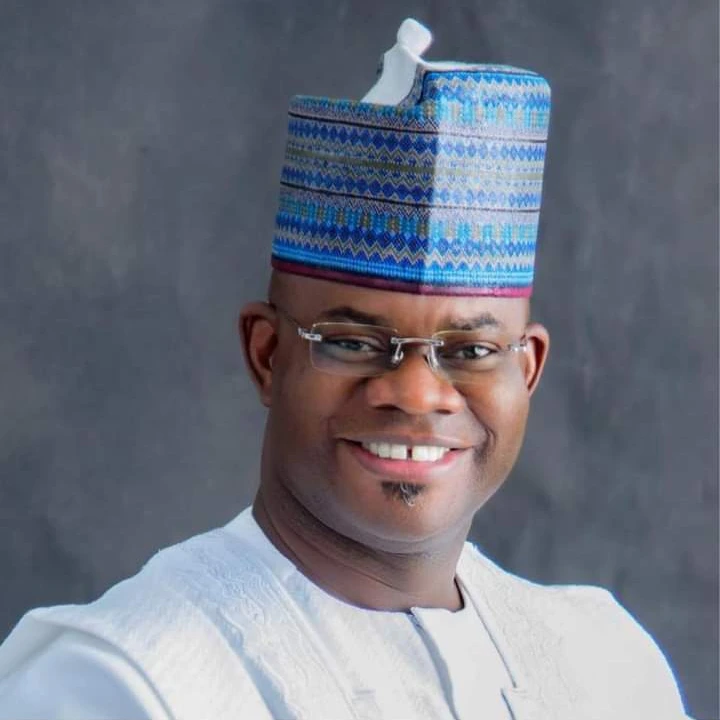

The embattled immediate past Governor of Kogi state, Yahaya Bello, says he would have appeared at the Federal High Court in Abuja to answer to the 19-count charge preferred against him by the Economic and Financial Crimes Commission, EFCC, but is afraid he would be arrested.
Though Bello was absent for his arraignment today April 23, His team of lawyers addressed the court on his behalf.
A member of his legal team, Adeola Adedipe, SAN, had this to say on his behalf;
“The defendant wants to come to court but he is afraid that there is an order of arrest hanging on his head,” Adedipe, SAN, submitted.
Adesipe then appealed to the court to set aside the exparte order of arrest it earlier issued against the former governor. The lawyer contended that as at the time the order of arrest was made, the charge had not been served on his client as required by the law.
He argued that it was only at the resumed proceedings on Tuesday that the court okayed substituted service of the charge on the defendant, through his lawyer.
“As at the time the warrant was issued, the order for substituted service had not been made. That order was just made this morning. A warrant of arrest should not be hanging on his neck when we leave this court,” counsel to the defendant added.
According to him, the Federal Government did not consult the 36 States of the federation before it enacted the EFCC Act through the National Assembly. He argued that section 12 of the 1999 Constitution, as amended, required the various Houses of Assembly of states to ratify the Act before it could become operative.
“This is a very serious matter that borders on the constitution and the tenets of federalism. It has to be resolved because as it stands, the EFCC is an illegal organization,” Bello’s lawyer added
However, EFCC’s lawyer, Mr. Kemi Pinheiro, SAN, urged the court to refuse the application, insisting that the warrant of arrest should not be set aside until the defendant makes himself available for his trial.
News
Nigeria Has Secured $2.25B World Bank Loan With An Interest Rate Of 1% – Minister Of Finance


The minister of Finance and coordinating minister of the economy, Wale Edun has announced that Nigeria has secured a $2.25bn World Bank loan with a 1% interest rate.
While speaking at the annual meetings of the International Monetary Fund (IMF) and World Bank Group on April 20, Edun disclosed that the loan was approved by the board of directors of the World Bank, and offers a 40-year term, a 10-year moratorium, and a one percent interest rate.
He said;
“If you look at the fact that we have qualified for the processing, just this week to the board of directors of the World Bank of a total package of $2.25 billion.
“There is no such thing as a free lunch but it is the closest you can get to free money. It is virtually a grant. It is about 40 years, 10 years moratorium and about one percent interest. That also is part of the flow that you can count.”
He added that Nigeria also secured similar budgetary support and low-interest funding from the African Development Bank (AfDB). Edun said;
“Clearly, there are also ongoing discussions with foreign direct investors. Some of these things take longer than you expect but they are relatively advanced discussions on major foreign direct investments flows into the country, specific transactions with specific companies, institutions, and authorities.”
This news has however stirred different reactions from citizens as not everyone agrees with the idea of Nigeria borrowing money.
-

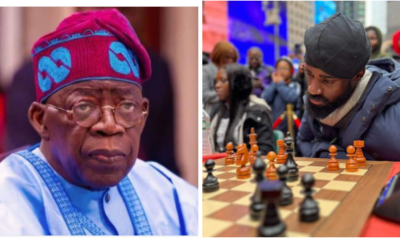

 Spotlight5 days ago
Spotlight5 days agoPresident Tinubu Congratulates Tunde Onakoya On Guinness World Chess Record
-

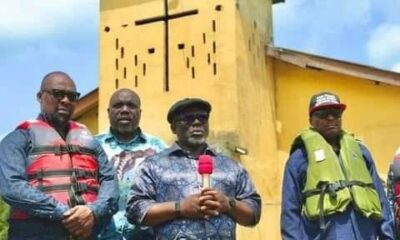

 Politics5 days ago
Politics5 days agoGovernor Of Delta State, Sheriff Oborevwori Visits Fled Community Of Okuama, Calls Indigenes To Return Home
-



 Transport3 days ago
Transport3 days agoFederal Government To Launch Out 2700 CNG Buses, Tricycles Ahead Of First anniversary Of Tinubu’s Administration
-

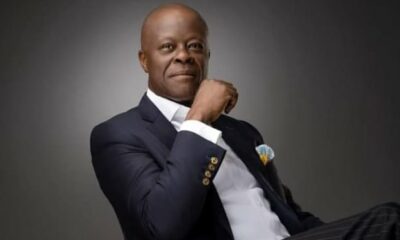

 News3 days ago
News3 days agoNigeria Has Secured $2.25B World Bank Loan With An Interest Rate Of 1% – Minister Of Finance
-

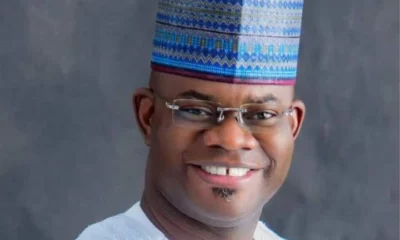

 News2 days ago
News2 days agoEFCC: Former Governor Of Kogi State, Yahaya Bello Fails To Show Up In Court, Says He Is Scared Of Arrest
-

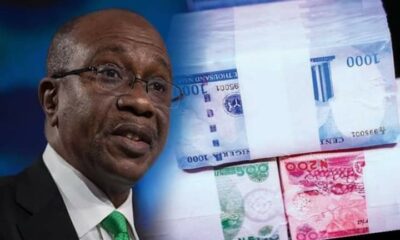

 Finance1 day ago
Finance1 day agoGodwin Emefiele Disobeyed Direction Of Law With Intent To Harm The Public, He Printed ₦684.5M Using ₦18.9B Says EFCC in fresh charge
-



 News2 hours ago
News2 hours agoNiger State Prisoners Run From Facility After Rainstorm Brings Down Part Of Fencing
-

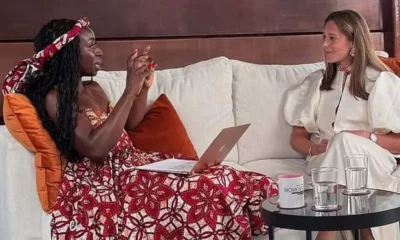

 Spotlight2 hours ago
Spotlight2 hours agoNigerian Woman Breaks Guinness World Record With 55-Hour Interview Marathon






